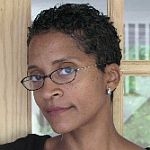Visit the Series Homepage
Vermont Reads 2011: "To Kill A Mockingbird"
 (HOST) This week VPR is examining race as part of our 2011 collaboration with the Vermont Humanities Council’s Vermont Reads statewide project to read and discuss To Kill A Mockingbird. The book offers many "teachable moments," but commentator Emily Bernard has been remembering an opportunity that was lost.
(HOST) This week VPR is examining race as part of our 2011 collaboration with the Vermont Humanities Council’s Vermont Reads statewide project to read and discuss To Kill A Mockingbird. The book offers many "teachable moments," but commentator Emily Bernard has been remembering an opportunity that was lost.
(BERNARD) I was an indoors child, the last picked for kickball. Sympathetic teachers allowed me to stay inside during recess where I read about children less fearful and more coordinated than I was – Harriet the Spy, Encyclopedia Brown, Jo March in Little Women – and Scout.
I didn’t read To Kill a Mockingbird as much as I surrendered to it. I was supposed to be doing chores, but I was hiding out in my bedroom with the book. Just 20 more minutes! I would call to my mother. But the book had me so deep in its hold that my mother finally surrendered, too.
Scout belonged to me, as I read the book in my bedroom. I was with her, running across neighbors’ lawns. In reality, I did not feel safe outside of my own house, as we were the only black family in our neighborhood. Scout was the outdoors to my indoors. And while my family negotiated the hostile waters of desegregation, Atticus Finch was the promise of a new South, where goodness prevailed, where hateful, angry whites were vanquished.
I ignored the parts of To Kill A Mockingbird I didn’t want to see. I ignored the black characters. They didn’t resemble anyone in the social world in which my family moved. And I ignored the "n word." I pretended it had nothing to do with me.
It wasn’t hard to do that inside in my private world of reading. It was impossible to do outside, in the world where my mother taught me to walk tall when the word echoed around me. Even when it wasn’t directed at me, I knew it had everything to do with me.
I have heard it said that a turning point in every black parent’s life is when your child comes home and asks what that word means. But I can’t ever remember not knowing what it meant. I knew it meant that I was less than, outside of. The word reminded me that the world was unsafe. Better to stay inside, like Boo Radley.
I remember the dread I felt when To Kill A Mockingbird showed up on the syllabus in the all-white classroom of my junior high school. My peers could not resist the chance to say the word out loud with impunity. My teacher said nothing.
"Sound enters the body and calls up a host of associations that the listener cannot control," writes the cultural historian John Gennari. Before I heard it out loud, the word was already inside of me, as it was inside of my white peers. In retrospect, it wasn’t the word that pained me in that classroom as much as the absence of the history lesson that has always been part of that word. It wasn’t the word. It was silence that surrounded it.
My teacher missed an opportunity to remind us that no one is excused from the history we have all made together. To Kill a Mockingbird is really the story of Scout’s transformation from ignorance to understanding. When my teacher chose silence, she chose ignorance. And just like that, Scout no longer belonged to me.